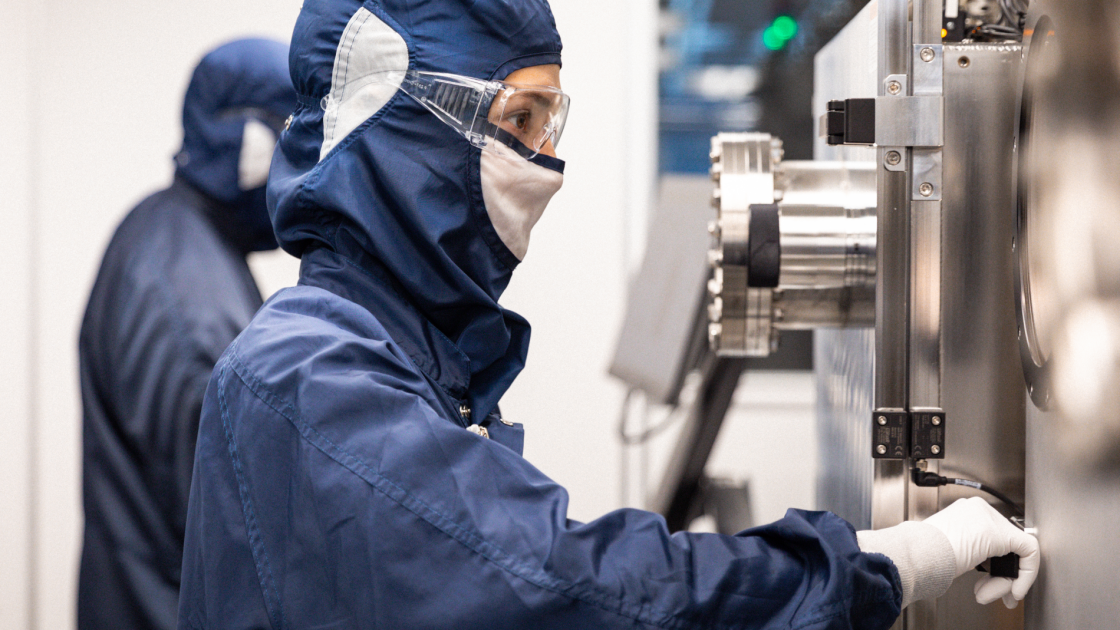Canadian quantum computing firm Nord Quantique has announced plans to work with Quebec-based research center C2MI to produce new semiconductors tailored for quantum computers and will keep the manufacturing process within North America.
“Ensuring a resilient and reliable supply chain is important to us not only to unlock our roadmap, but also for national security reasons,” said Nord Quantique CEO Julien Lemyre in an interview with PCMag. “Many countries are now trying to have sovereignty over these technologies.”
C2MI and Nord Quantique will develop “superconducting qubits,” or superconducting circuits, for quantum computers, which are, in layman’s terms, what make quantum computers work. While qubits, or quantum bits, are the basic unit of information in a quantum machine and like transistors in how they work, they are also unreliable and perhaps the industry’s biggest hurdle. While some researchers in China recently claimed to have been able to, at least partially, crack encryption with quantum computers, it has been difficult to really exploit the machines’ full potential.
As Microsoft’s Azure Quantum explains, today’s quantum computers are more error-prone than ordinary computers because they exist in a fragile state. This means that researchers can expect, on average, that one out of every 100 to 1,000 quantum gate operations will result in an error, or error rate anywhere from 0.1 percent to one percent of the time.
“Quantum error correction is the future of quantum computing,” Lemyre said. “The mistakes that [qubits] usually make these machines useless for industry, meaning they don’t have the performance needed to unlock useful applications. This is the state of the field and the solution to this challenge is really what everyone is looking for.”
Nord Quantique is also working with NY CREATES, or the New York Center for Research, Economic Advancement, Technology, Engineering and Science. The New York-based nonprofit facilitates quantum computing research and development at its 300 mm semiconductor facility.
An aluminum cavity used in quantum computing. (Credit: Nord Quantique)
Lemyre said his company is not working with a traditional chipmaker like TSMC because quantum computers are currently too well suited for such a large semiconductor maker. “They want to mass-produce a lot of chips, and quantum isn’t ready for that right now,” he explained, calling the manufacturing process for quantum computing more broadly “challenging.”
Recommended by our Editors
While quantum chips may visually resemble ordinary computer chips, Lemyre explains that chips for quantum computing are made of different materials. They are also designed to operate at cryogenic temperatures near absolute zero (about minus 459 degrees Fahrenheit).
And North America’s northeast coast more broadly is becoming a sort of “chipmaking corridor” for the US and Canada after a meeting between President Biden and Canadian Prime Minister Justin Trudeau last year, where the leaders shared concerns about authoritarian leaders in the countries such as China and Russia and decided to support IBM’s efforts to manufacture chips in North America rather than overseas.
Canada has committed to pouring approximately $181 million into its domestic semiconductor industry. The US has also funded semiconductor manufacturing in the country with the powerful CHIPS Act, giving billions in funding to firms such as Intel, Samsung, Micron and TSMC to build and renovate US factories.
Get our best stories!
Register for What’s new now? to get our top stories delivered to your inbox every morning.
This newsletter may contain advertisements, deals or affiliate links. Subscribing to a newsletter indicates your consent to our Terms of Use and Privacy Policy. You can unsubscribe from newsletters at any time.
About Kate Irwin
journalism


